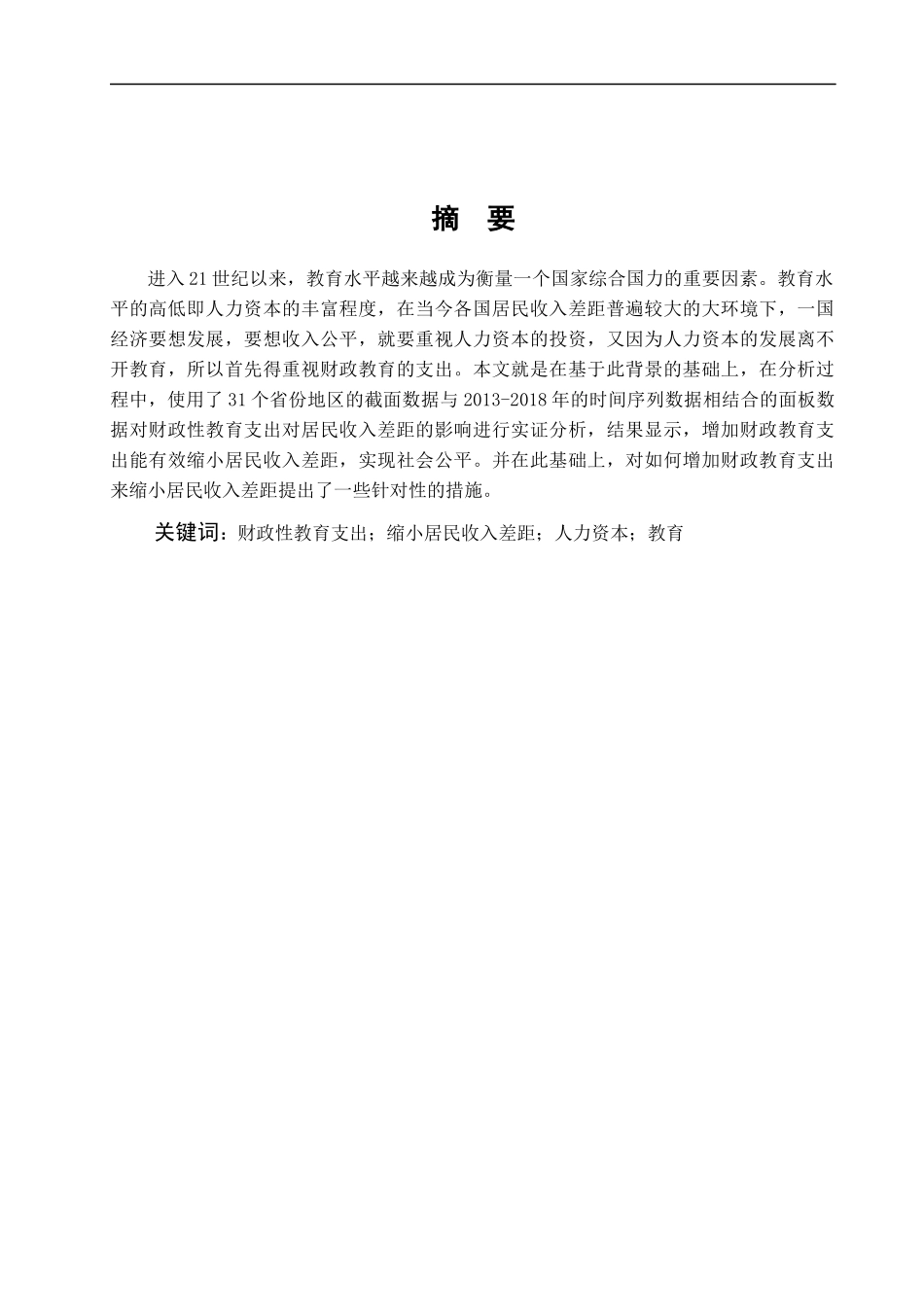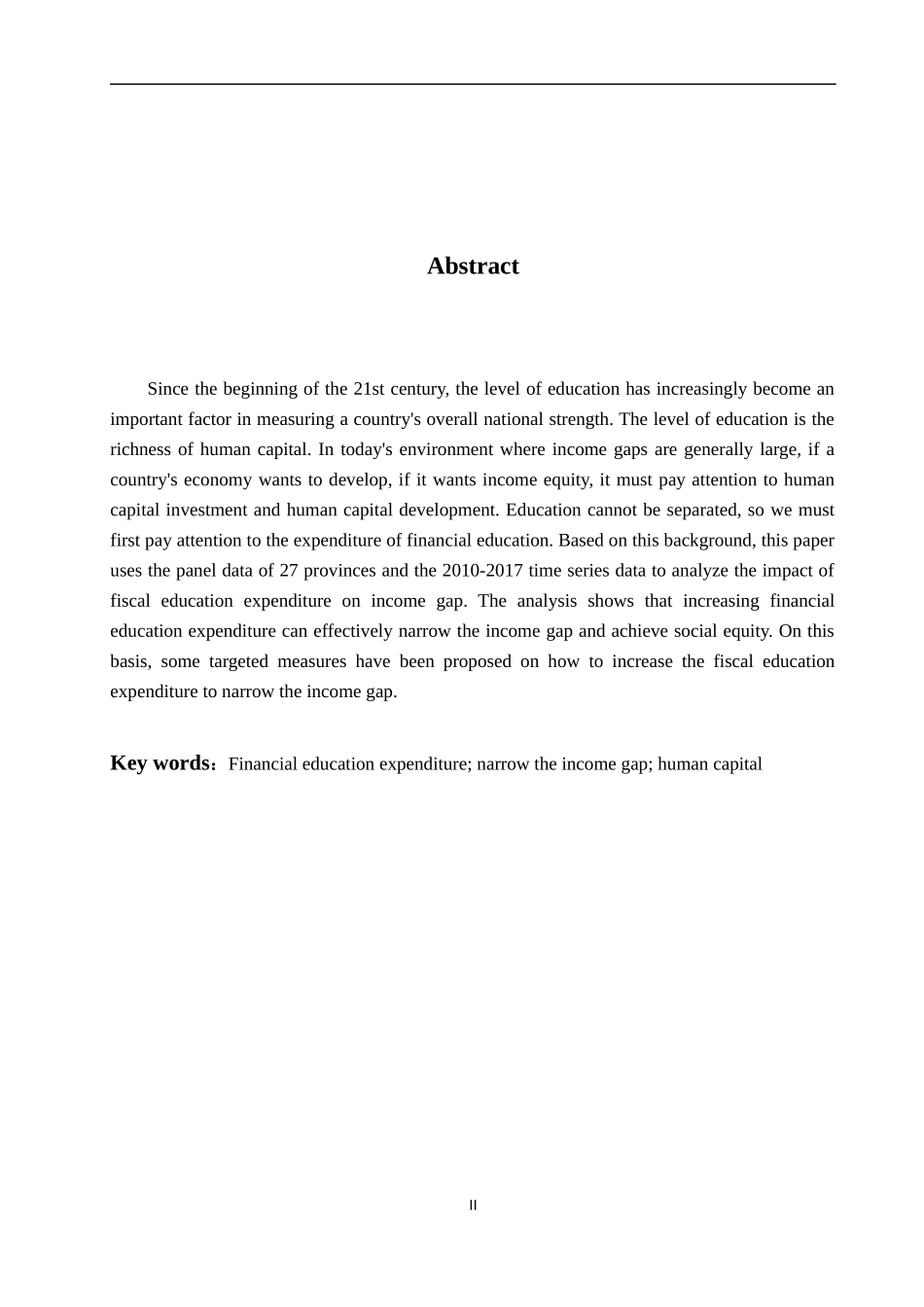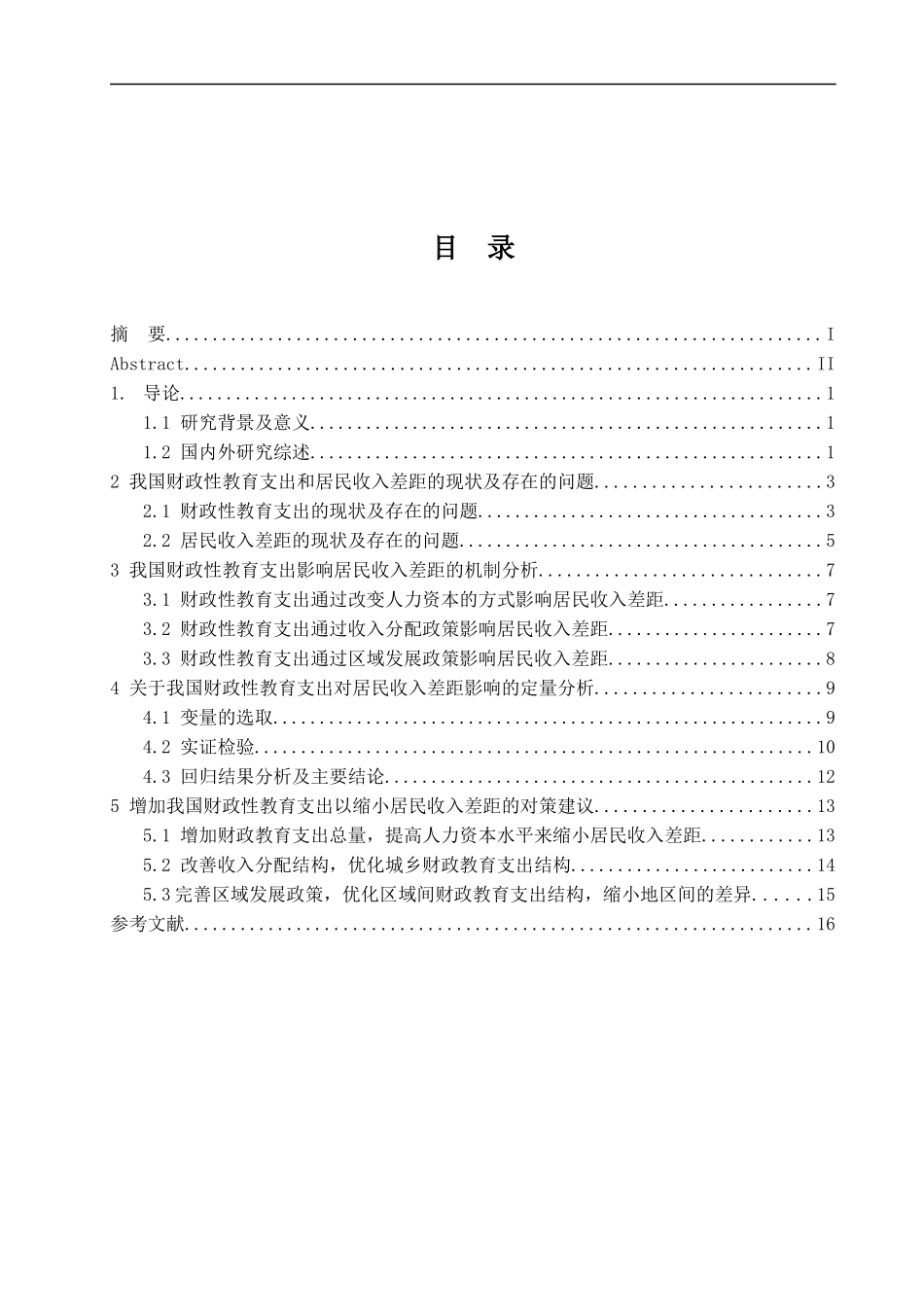摘 要进入 21 世纪以来,教育水平越来越成为衡量一个国家综合国力的重要因素。教育水平的高低即人力资本的丰富程度,在当今各国居民收入差距普遍较大的大环境下,一国经济要想发展,要想收入公平,就要重视人力资本的投资,又因为人力资本的发展离不开教育,所以首先得重视财政教育的支出。本文就是在基于此背景的基础上,在分析过程中,使用了 31 个省份地区的截面数据与 2013-2018 年的时间序列数据相结合的面板数据对财政性教育支出对居民收入差距的影响进行实证分析,结果显示,增加财政教育支出能有效缩小居民收入差距,实现社会公平。并在此基础上,对如何增加财政教育支出来缩小居民收入差距提出了一些针对性的措施。关键词:财政性教育支出;缩小居民收入差距;人力资本;教育AbstractSince the beginning of the 21st century, the level of education has increasingly become an important factor in measuring a country's overall national strength. The level of education is the richness of human capital. In today's environment where income gaps are generally large, if a country's economy wants to develop, if it wants income equity, it must pay attention to human capital investment and human capital development. Education cannot be separated, so we must first pay attention to the expenditure of financial education. Based on this background, this paper uses the panel data of 27 provinces and the 2010-2017 time series data to analyze the impact of fiscal education expenditure on income gap. The analysis shows that increasing financial education expenditure can effectively narrow the income gap and achieve social equity. On this basis, some targeted measures have been proposed on how to increase the fiscal education expenditure to narrow the income gap.Key words:Financial education expenditure; narrow the income gap; human capitalII目 录摘 要......................................................................IAbstract.......................................


